|
|
|
|
|
|
| |
SYMPOSIUM PHOTOS |
| |
|
|
|
|
|
| |
|
|
|
|
|
| |
| |
FIELD TRIP |
|
| |
|
|
| |
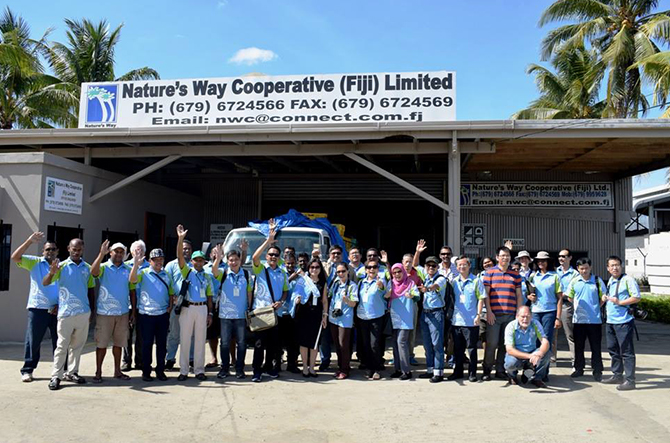 |
|
| |
|
|
| |
Participants visiting the Nature's Way Cooperative's (NWC) quarantine treatment facility. NWC was established in 1995 to perform mandatory quarantine treatments on behalf of Fiji’s fruit export industry. |
|
| |
|
|
| |
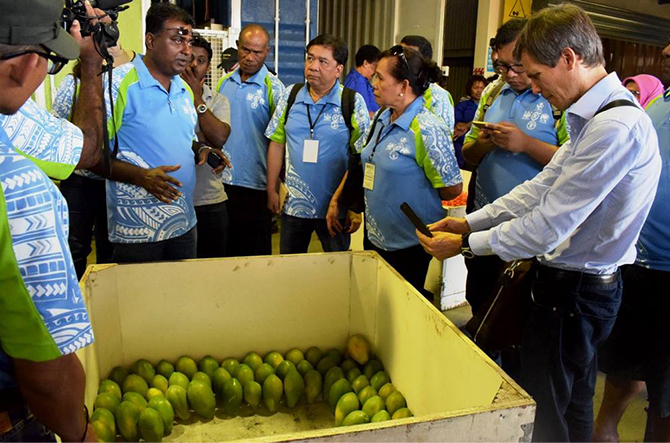 |
|
| |
|
|
| |
Nature’s Way Cooperative (NWC) has over 140 members made up of farmers and exporters from the public and private sector. They export around 1,300 tonnes of fruit (papaya, mango, eggplant and breadfruit) annually. |
|
| |
|
|
| |
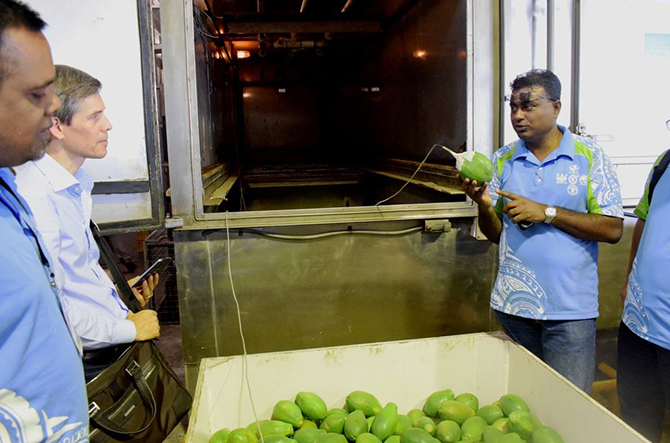 |
|
| |
|
|
| |
A thermometer is inserted inside a papaya fruit to determine the ideal temperature for the high-temperature forced-air treatment (HFTA). |
|
| |
|
|
| |
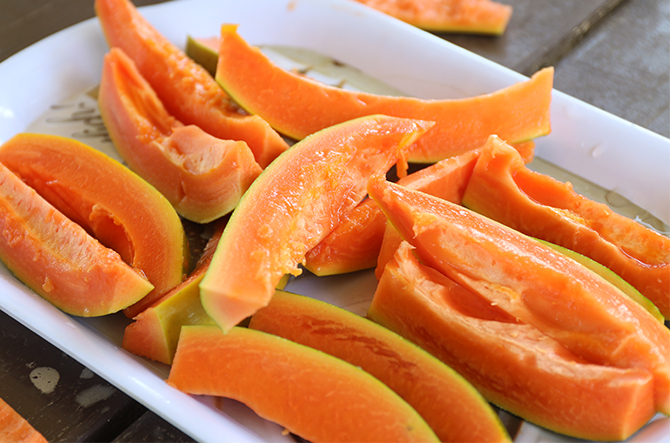 |
|
| |
|
|
| |
The Fiji Red is a sweet papaya variety that is grown in Fiji and is exported to Australia and New Zealand. |
|
| |
|
|
| |
|
|
| |
|
|
| |
Next, participants visited the Bula (Fijian for 'hello') Agro Enterprises' nursery. It supplies seedlings of various fruits and vegetables to neighbouring farmers in Nadi, Fiji. |
|
| |
|
|
| |
|
|
| |
|
|
| |
Bula Agro Nursery is owned and managed by Sant Kumar. Aside from establishing the first fruit nursery in Fiji, he introduced the ‘disaster mitigation container’ strategy that
safeguards seedlings of various crops during dangerous cyclones. |
|
| |
|
|
| |
|
|
| |
|
|
| |
Participants had a taste of the excellent local fruits in Fiji, including mango, soursop, breadfruit, New Guinea walnut, watermelon, pineapple, starfruit, papaya, and several types of banana. |
|
| |
|
|
| |
|
|
| |
|
|
| |
To witness the local culture and marketing of Fijian horticultural produce, ISTF 2017 delegates were
briefly taken to a local market in Sigatoka. |
|
| |
|
|
| |
|
|
| |
|
|
| |
After the market, participants were welcomed with a traditional kava drinking ceremony in the Lawai Village in Nadroga, Fiji. |
|
| |
|
|
| |
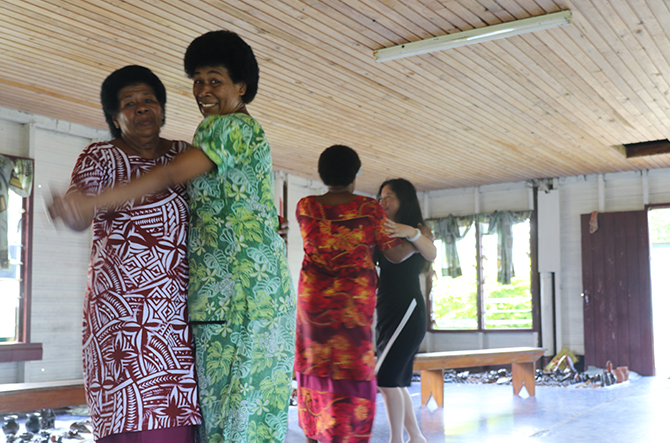 |
|
| |
|
|
| |
Participants dancing with the local women in the village. |
|
| |
|
|
| |
|
|
| |
|
|
| |
A campaign to ‘Plant a Fruit Tree for Fiji’s Health and Wealth’ was launched by MOA Fiji in Lawai Village, Nadroga, Fiji. |
|
| |
|
|
| |
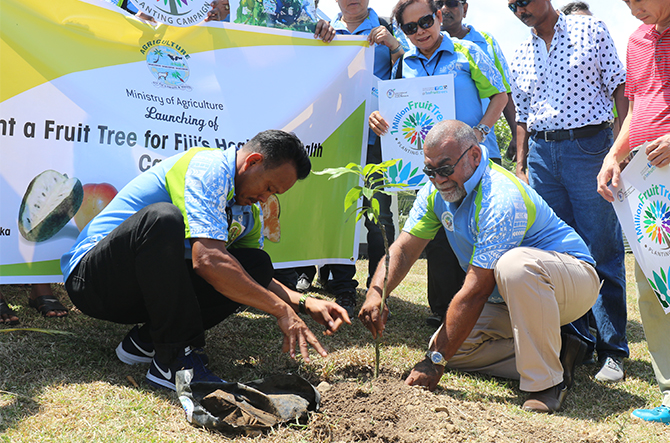 |
|
| |
|
|
| |
The tree planting was launched by MOA Deputy Secretary General, Uraia Waibuta (right) with the support of TFNet CEO Desa Hassim (left). |
|
| |
|
|
| |
|
|
| |
|
|
| |
Group photo of the participants during tree planting. |
|
| |
|
|
| |
|
|
| |
|
|
| |
After the tree planting event, delegates were taken to the Sigatoka Research station for lunch
where they sampled a variety of local Fijian cuisine. |
|
| |
|
|
| |
|
|
| |
|
|
| |
The final site visit for the day was to the Technical Mission of the Republic of China (Taiwan) which is
located on the West Bank of Sigatoka River. The facility is involved with horticultural
crops of significance to Fiji, and hosts a demonstration farm and nursery which provides
training and supply of inputs to farmers. |
|
| |
|
|
| |
|
|
| |
|
|
| |
Mr. Yeong-Lang Yang, team leader of the technical mission, explains how they developed the new Green Pearl guava variety. |
|
| |
|
|
| |
|
|
| |
|
|
| |
Mr. Yang showing the healthy local guava seedlings that serve as rootstocks for the Green Pearl guava. |
|
| |
|
|
| |
|
|
| |
|
|
| |
Participants are given a free taste of the Green Pearl guava. |
|
| |
|
|
| |
|
|
| |
|
|
| |
Dragon fruit is also being studied in the model farm. |
|
| |
|
|
| |
|
|
| |
|
|
| |
Passion fruit is also being developed in the farm. |
|
| |
|
|
| |
| Line |
| |
Copyright © 2018. All rights reserved.
Best viewed in Mozilla Firefox 3.0 or Internet Explorer 7.0 and above, with a screen resolution of 1024x768 pixels. |
| |
